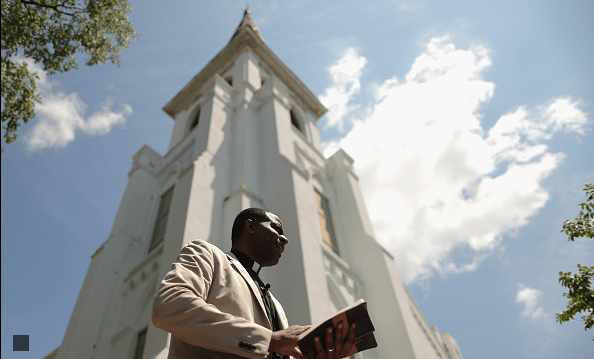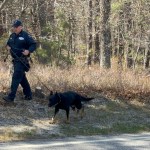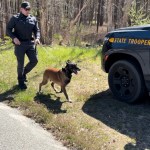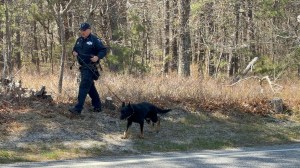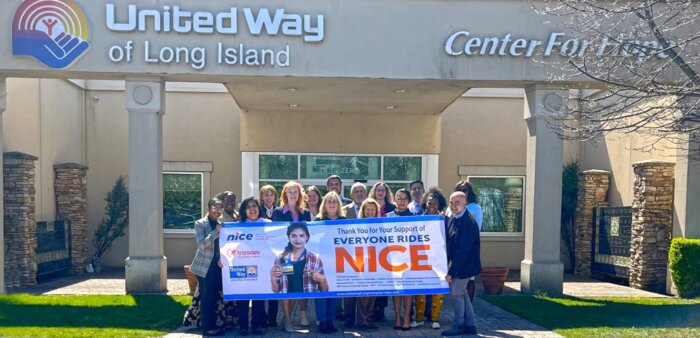Still, many Muslim advocacy groups attended the multi-day event. As one local Muslim leader explained at the time: Muslim Americans’ inclusion in the summit was a sign that the often marginalized community was moving from “the ‘outhouse’ to the ‘main house.’”
National security hawks lamented what they perceived to be the summit’s lack of focus, while also criticizing the Obama administration for pandering. Rep. Peter King (R-Seaford), current chairman of the House subcommittee on Counterterrorism and Intelligence, and former chair of the House Committee on Homeland Security, had held five “Muslim Radicalization” hearings in 2011 and 2012. In an interview with the Press, the Congressman said that after the latest Obama-sponsored anti-extremism summit he came away thinking, “It’s almost as if we’re afraid, or the president is afraid…to identify this for what it is.”
Last week’s shooting in Charleston, South Carolina by an alleged gunman who espoused racist views toward blacks has revived the discussion of entrenched racism and the current status of radical right-wing organizations in America. The mass slaying also fueled near-widespread condemnation of the Confederate flag’s continued presence in South Carolina and other Southern states.
On Wednesday, the New York Times published a widely-shared article titled “Homegrown Radicals More Deadly than Jihadis in US” that cited a not-yet-published survey of police and sheriffs’ departments that by a wide margin reportedly ranks “anti-government violence” (74 percent) as their chief concern. Thirty-nine percent of law enforcement agencies selected al-Qaeda-inspired violence as their primary worry.
The survey, which the Times said will soon be published by the Triangle Center on Terrorism and Homeland Security and the Police Executive Research Forum, is not the first of its kind, but rather the latest in a growing number of analyses that place right-wing extremist groups—not Islamic extremism—as constituting the greatest threats facing law enforcement agencies throughout the country.
A report released by the National Consortium for the Study of Terrorism and Response to the Terrorism at the University of Maryland in July 2014 found that the dominant threat in the minds of law enforcement agencies nationwide was the right-wing “sovereign citizens” movement, followed by Islamic extremism.
The Times story also included statistics compiled by the New America Foundation, which found that almost by two-to-one, right-wing attacks have killed more people (48) since Sept. 11, 2001 than Jihadists’ attacks (26). The nine people killed recently in Charleston were included in the foundation’s tally.
“Law enforcement agencies around the country have told us the threat from Muslim extremists is not as great as the threat from right-wing extremists,” Charles Kurzman, one of the authors of the Triangle Center study, told the Times.
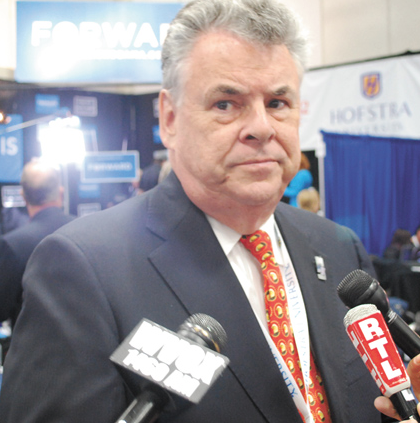
Yet despite this growing body of data, King, one of the nation’s top counterterrorism officials, isn’t convinced. During a recent phone interview with the Press conducted on the same day when the Times’ report came out, he staunchly maintained that fundamental Islamic extremism poses the most immediate and significant threats instead.
“The threat of Islamic terrorism is thousands of times greater than any homegrown non-Islamic threat,” he says, explaining that the “magnitude” of the threats posed by such extremism is disparate, because of potential cooperation from foreign powers.
King also believes the New America Foundation statistics are flawed.
“There could’ve been thousands of people killed if attacks weren’t stopped,” he says, citing the 2009 squashed plot to bomb the New York City subway system and the 2013 Boston Marathon bombing, which killed three but injured dozens.
The Department of Homeland Security in 2009 released a report warning that the political and economic climate at the time—the economic downturn and the election of the nation’s first black president—could lead to a resurgence in right-wing groups. Homeland Security, however, noted that it had not uncovered any active threats.
“Rightwing extremists have capitalized on the election of the first African American president, and are focusing their efforts to recruit new members, mobilize existing supporters, and broaden their scope and appeal through propaganda, but they have not yet turned to attack planning,” the report stated.
The report was widely condemned by conservatives, and, as the Times noted, eventually withdrawn.
Despite the apparent racist motivations that inspired the shooter to murder nine people inside a historic black church in South Carolina, no direct link has been made between Dylann Storm Roof and extremist groups, though a purported manifesto discovered on a website reportedly registered to Roof refers to the Council of Conservative Citizens, which fought against school desegregation, according to the Southern Poverty Law Center.
The conservative group said on its website that it was “deeply saddened” by the attack.
“We pray, for the sake of all Americans, that there will not be an escalation of racial tension,” it said, with a photo collage of the nine victims.
Since Sept. 11, Muslims American communities from New Jersey to Long Island have been the focus of surveillance by the NYPD and nationwide by the FBI, the latter using informants to infiltrate mosques, sometimes under the threat of being placed on the government’s secret no-fly list. Such tactics have been condemned by Muslim leaders. In fact, the NYPD has said that surveillance of mosques and shops has not led to a single terrorism investigation.
Widespread surveillance without evidence of criminal activity has fueled Islamophobia and cast suspicion on Muslim communities, advocates argued prior to Obama’s recent summit. The focus by the White House on Muslims in America and their purported path to radicalization due to outside threats like ISIS and al Qaeda led advocates to question why the same approach wasn’t being done to better understand extremism on the right.
Right-wing groups are very much on the FBI’s radar, King claims, but they just don’t pose as great a risk to national security as their foreign terrorism counterparts, according to him.
“They’re basically individual threats,” he says,referring to domestic right-wing extremist groups. “You obviously have the horrible shooting in Charleston. These are evil people, these are dangerous people, but they’re not a threat to the nation like Islamic terrorism is.”
–With Christopher Twarowski



